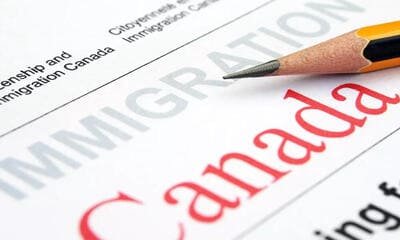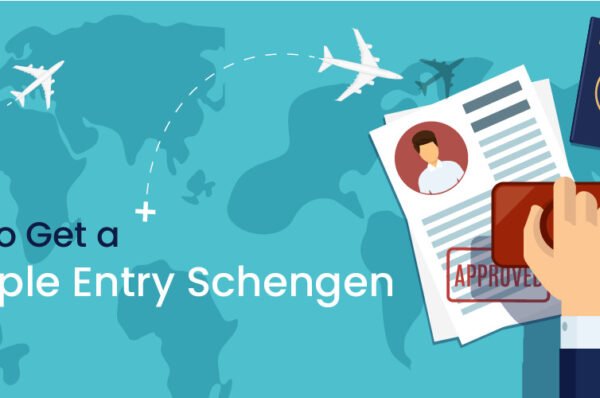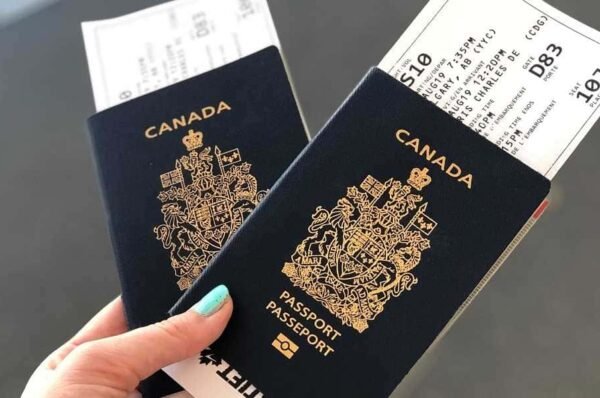Many foreign nationals travel to Canada for leisure, to visit family and friends, or for business purposes.
Residents of visa-required countries* must obtain a visitor visa to enter Canada. However, there are various reasons why Immigration, Refugees, and Citizenship Canada (IRCC) may deny an applicant’s visitor visa application
Visitors from visa-exempt countries traveling to Canada require an Electronic Travel Authorization (eTA) instead of a traditional visitor visa.
Failure to provide proper and accurate supporting documents and/or pay government processing fees
Visiting Canada entails adhering to stringent entry and admissibility criteria, which necessitate the submission of mandatory documents as part of the visitor visa application to IRCC. It’s advisable for visitors to Canada to thoroughly review IRCC’s application checklist to ensure they compile an accurate and comprehensive set of supporting documents.
Moreover, visitor visa applicants must ensure timely payment of IRCC’s processing fees to prevent any potential issues with their application, such as refusal.
Inadmissibility due to prior criminality
Visitor visa applicants with a criminal history may be denied entry to Canada. However, it is also possible that the applicant’s criminal background may not bar them from coming to Canada. Therefore, foreign nationals seeking a visitor visa should be transparent about their history and ensure they submit a criminal record check and any other applicable documentation to support their application.
Note: This may involve putting together documents to show IRCC that the applicant is rehabilitated and should be allowed to enter Canada as a visitor. An authorized immigration lawyer can help with these efforts.
Doubts about an applicant’s intentions during their stay in Canada
Applicants risk having their visitor visa refused if they fail to clearly communicate their purpose to both IRCC and the Canada Border Services Agency (CBSA). To dispel any uncertainty, applicants should furnish supplementary documents like an itinerary, aiding immigration authorities and border security officers in comprehending the purpose of their visit and their planned activities in Canada.
Additionally, proof of intention may encompass flight reservations and hotel bookings.
Applicant lacks ties to their home country
Given that visitors are typically permitted to stay in Canada for up to six months, a crucial aspect of the application process involves demonstrating their intent to depart at the end of their authorized stay. Consequently, if an IRCC or CBSA officer suspects that an applicant may not leave Canada upon visa expiry, the application may face refusal.
One reason for IRCC’s doubt regarding an applicant’s departure is the perceived lack of strong ties to their home country. To allay such concerns and instill confidence in IRCC that the applicant intends to leave Canada, submitting documents such as the following is recommended:
- Evidence of home country employment (confirmation letters and pay stubs)
- Evidence of family dependencies in the applicant’s home country (children, parents, grandparents etc.)
- Evidence of home country property ownership (lease agreements etc.)
Concerns about the applicant’s past travel history
Visiting Canada will be harder, but not impossible, for applicants with a poor travel history. In the context of a visitor visa application, IRCC may refuse to issue a visa to foreign nationals with a history of:
- Prior overstay in Canada
- Prior refusal of Temporary Resident Visa (TRV) applications in Canada
To address IRCC’s concerns regarding past TRV refusals or apprehensions about potential overstays in Canada, transparency is crucial. Applicants should openly communicate with the immigration department regarding their history.
Similar to the importance of transparency regarding criminal history and the purpose of visiting Canada, visitor visa applicants should furnish IRCC with a comprehensive explanation of their past and demonstrate the steps they’ve taken to rectify any issues.
Examples of corrective actions may include evidence of adherence to visa regulations in subsequent travels and indications of the individual’s commitment to complying with Canadian immigration laws
Misrepresentation
Applicants must maintain honesty and truthfulness throughout the entirety of the visitor visa application process to prevent misrepresentation issues.
It’s essential to note that failing to disclose TRV refusals to other countries, such as the United States, is an example of a misrepresentation issue that can result in a visitor visa refusal
The applicant does not have legal status in their country of residence
Applicants must address any illegal status issues in their country of residence before applying for a Canadian visitor visa. Presenting proof of legal residence, for example, can reassure IRCC that the applicant will adhere to the law during their stay in Canada.
Failure to meet health standards
Some foreign nationals, particularly those applying for a Super Visa, may be required to undergo a medical examination as part of their visitor visa application.
Entry to Canada may be denied based on an individual’s health status, but it’s possible to address these concerns by providing IRCC with a comprehensive medical history and successfully completing any required medical examinations. Additionally, a letter from a certified healthcare professional affirming the applicant’s good health can be beneficial
Failure to meet health standards
IRCC and CBSA officers need assurance that foreign nationals can support themselves financially during their stay in Canada. Therefore, demonstrating financial stability is crucial by providing documents confirming the applicant’s income and assets. This may include recent bank statements, employment verification letters, and any other relevant details that establish financial security.









